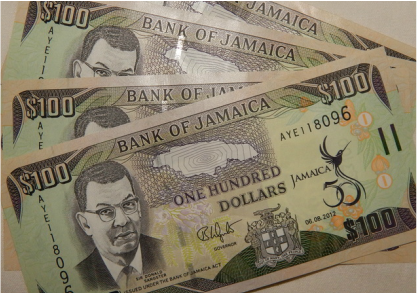
Despite varying socio-economic backgrounds, Jamaicans from all walks of life share a common cry- to see a better Jamaica. It is not uncustomary to hear citizens – from the vendor on the street to the office worker expressing their dissatisfaction on Jamaica’s current state. Here are 5 things Jamaicans want the most for their island paradise.
1. Decrease in crime rate
Jamaicans reflect on days past when they used to hang out with friends until ‘wee hours in the morning’ and sleep with the windows open at nights. These days are now long gone, for as the years went by crime became rampant across all fourteen parishes. Yet we are hopeful, for in 2014, Jamaica saw a significant decrease in crime rate that it had not seen in 11 years with the Planning Institute of Jamaica (PIOJ) reporting an 8.2% decrease in murders. Undoubtedly, reduction of the crime rate in Jamaica would attract necessary foreign investors, bring tourism to its highest peak yet, encourage skilled and well-to-do Jamaicans living abroad to return and offer peace of mind for Jamaicans at home . Not just any reduction but a significant drop in the crime rate is a desire resting on the hearts of many Jamaicans.
2. Stable dollar/economy
They say, ‘who feels it, knows it’…and every Jamaican ‘feels’ the results of the country’s unstable economy caused by the weak, non-competitive dollar. If tomorrow, the dollar should swing from its decline and find itself back in the game- at a competitive position then surely the quality of life for Jamaicans would increase. It would be a welcomed relief for citizens to see the prices of everyday items within reach and not increasing with every visit to the supermarket. Jamaicans want to be able to provide strong financial support to their families and an opportunity to live more comfortably and sustain basic human needs. A stable dollar would also mean that Jamaicans could budget better for future goals and rest assured that the dollar would not fail them.
3. Politicians get their act together
Many have grown tired of the absence of good governance supported by the disunity between the two major political parties. If JLP and PNP can get their act together then Jamaica will achieve a more stable system of governance. Wiser decisions will be made resulting from the shared stock pool of thoughts arising from both parties. And Jamaicans can be hopeful that the goals of Vision 2030 may be accomplished. The country would be better able to serve its citizens and may find itself smoothly transitioning to a first world country.
4. Stop selling the country to foreigners
While it is worth recognizing that foreign investments lay claim to a host of benefits to the Jamaican economy, Jamaicans also want to have access to more opportunities to invest in their own country. Even though foreign investment is meant to benefit Jamaica’s economy, with tax waivers, incentives and more often than not employment of foreign nationals to fill the vacancies, Jamaica sometimes ends up on the losing end, especially when these companies send their profits back to their homeland. On the flip side, local investments encourage local employment and Jamaicans spend their money at home, recycling the dollar in the country. That’s definitely building up the ‘land we love’ and has far reaching implications for the progress of the country.
5. Freedom to enjoy the country
Jamaicans want liberty to access beaches and other recreational facilities in the country by virtue of their citizenship. Some of the places visited by tourists and other outsiders have not yet been toured by Jamaicans because of prohibitive costs for the average Jamaican, tall fences and mean security guards. Jamaicans across all socio-economic backgrounds want to have the same opportunities to enjoy the world class beaches and facilities that are right here in their home country. It could have tremendous implications for the quality of life of Jamaicans if there exists equitable access to recreational and public facilities.